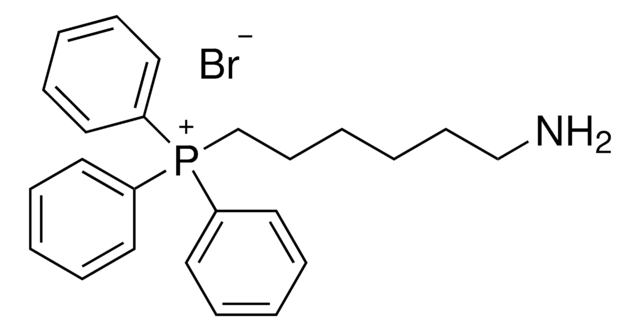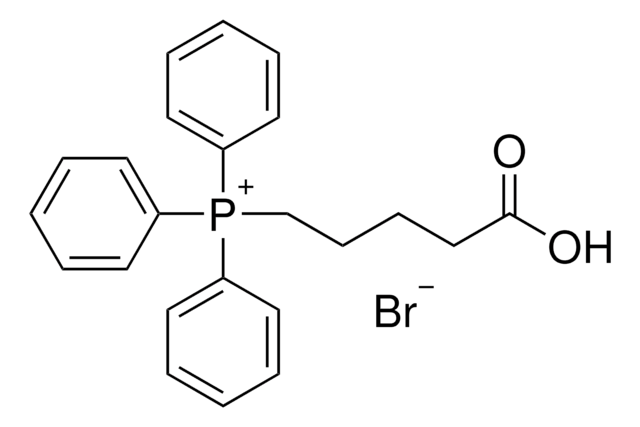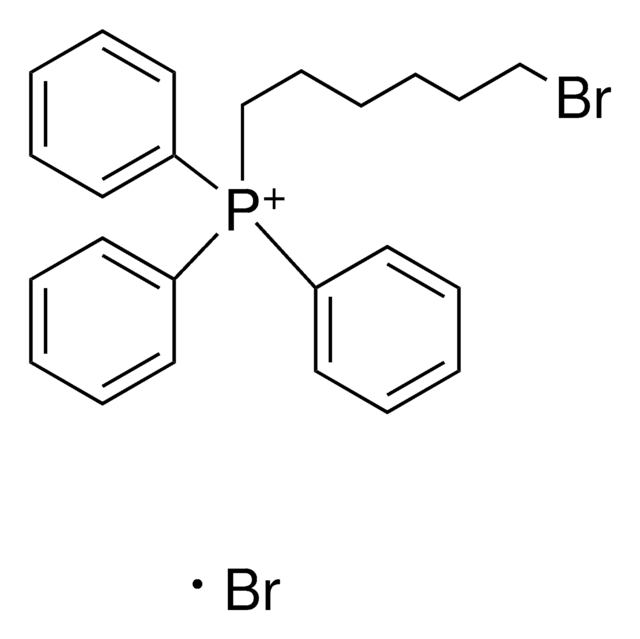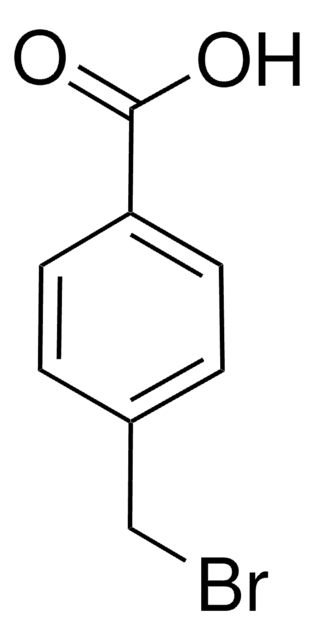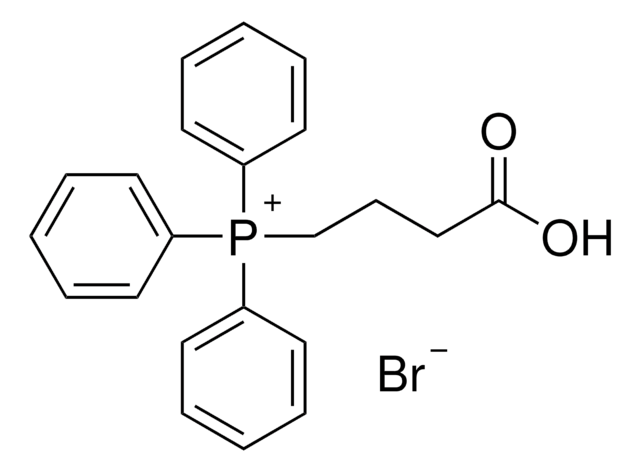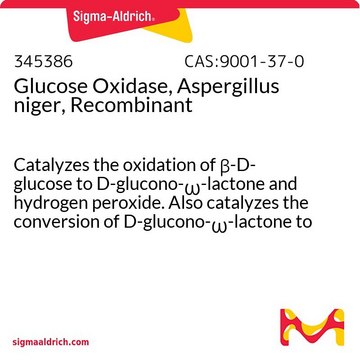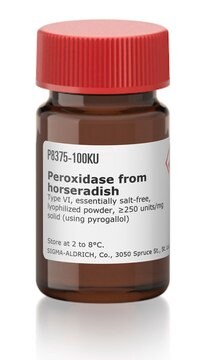906107
(9-Aminononyl)triphenylphosphonium bromide
90%
Sinônimo(s):
Aminononane TPP mitochondrial tag, Mitochondria-targeting probe building block, Phosphonium lipocation tag
Faça loginpara ver os preços organizacionais e de contrato
About This Item
Fórmula empírica (Notação de Hill):
C27H35BrNP
Peso molecular:
484.45
Código UNSPSC:
12352200
Produtos recomendados
Ensaio
90%
forma
powder
temperatura de armazenamento
2-8°C
cadeia de caracteres SMILES
NCCCCCCCCC[P+](C1=CC=CC=C1)(C2=CC=CC=C2)C3=CC=CC=C3.[Br-]
Aplicação
Mitochondria perform several functions in the cell, and dysfunction has been implicated in various organ systems and disease states, including neurodegenerative disorders, cardiovascular diseases, and cancers. The targeting of small molecules to the mitochondria can help to probe and better understand this relationship or to increase therapeutic efficacy by concentrating a drug at its site of action and reducing off-target effects. This bromohexane triphenylphosphine (TPP) tag is conjugated to small molecules to localize them to the mitochondria in cells where the TPP cations facilitate both cellular uptake and accumulation in the mitochondria.
produto relacionado
Código de classe de armazenamento
11 - Combustible Solids
Classe de risco de água (WGK)
WGK 3
Ponto de fulgor (°F)
Not applicable
Ponto de fulgor (°C)
Not applicable
Certificados de análise (COA)
Busque Certificados de análise (COA) digitando o Número do Lote do produto. Os números de lote e remessa podem ser encontrados no rótulo de um produto após a palavra “Lot” ou “Batch”.
Já possui este produto?
Encontre a documentação dos produtos que você adquiriu recentemente na biblioteca de documentos.
Marcel Culcasi et al.
Journal of medicinal chemistry, 56(6), 2487-2499 (2013-02-27)
A series of mitochondria targeted α-aminophosphonates combining a diethoxyphosphoryl group and an alkyl chain-connected triphenylphosphonium bromide tail were designed and synthesized, and their pH-sensitive (31)P NMR properties and biological activities in vitro and in vivo were evaluated. The results showed
Changwook Lee et al.
Journal of the American Chemical Society, 137(13), 4358-4367 (2015-03-19)
The mitochondrial pool of Hsp90 and its mitochondrial paralogue, TRAP1, suppresses cell death and reprograms energy metabolism in cancer cells; therefore, Hsp90 and TRAP1 have been suggested as target proteins for anticancer drug development. Here, we report that the actual
Wen Zhang et al.
Analytical chemistry, 89(12), 6840-6845 (2017-05-16)
Mitochondrial morphology regulated by fusion and fission processes determines mitochondrial function and cell fate. Some studies showed hyperfused mitochondria could induce apoptosis in cancer cells, but the relevant molecular mechanisms remain elusive. Superoxide (O2•-) and pH play vital roles in
Friedrich Kreyenschmidt et al.
Chemistry (Weinheim an der Bergstrasse, Germany), 24(5), 1168-1177 (2017-11-08)
The combination of CoCl2 and 1,3-dienes is known to catalyze challenging alkyl-alkyl cross-coupling reactions between Grignard reagents and alkyl halides, but the mechanism of these valuable transformations remains speculative. Herein, electrospray-ionization mass spectrometry is used to identify and characterize the
Yon Ju-Nam et al.
Organic & biomolecular chemistry, 4(23), 4345-4351 (2006-11-15)
We report the synthesis and structural characterisation of a new family of stable phosphonioalkylthiosulfate zwitterions, R3P+ (CH2)nS2O3- (R = Ph or Bu, n = 3,4,6, 8 or 10) which behave as cationic masked thiolate ligands with applications in the functionalisation
Nossa equipe de cientistas tem experiência em todas as áreas de pesquisa, incluindo Life Sciences, ciência de materiais, síntese química, cromatografia, química analítica e muitas outras.
Entre em contato com a assistência técnica